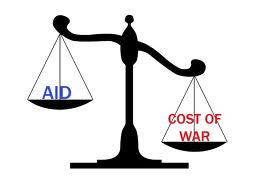Pakistan’s economy hit hard by war on terror
Terrorism in Pakistan has killed thousands, injured tens of thousands – and cost the country billions
By Sohail Ahmed
2010-06-18
Terrorism in Pakistan cost the nation 6% of its Gross Domestic Product (GDP) in 2009-10, and has killed nearly 9,000 Pakistanis in the past eight years. (report dated 2010, Pakistan’s death toll has reached over 30,000 civilians killed include by drone strikes)
![A Pakistani paramilitary soldier stands beside a road during a strike against a suicide bomb attack in Karachi January 1. Pakistan’s financial hub has been widely affected by terrorist activities. Pakistan’s Economic Survey report says terrorism has taken a heavy toll on the economy. [RIZWAN TABASSUM/AFP/Getty Images]](http://centralasiaonline.com/shared/images/2010/06/18/PakEconomy-218_172.jpg)
A Pakistani paramilitary soldier stands beside a road during a strike against a suicide bomb attack in Karachi January 1. Pakistan’s financial hub has been widely affected by terrorist activities. Pakistan’s Economic Survey report says terrorism has taken a heavy toll on the economy. [RIZWAN TABASSUM/AFP/Getty Images]
Terrorism has taken a heavy toll on Pakistan’s economy since 2001, according to Pakistan’s 2009-2010 economic survey report released earlier this month by the Ministry of Finance.
Militants intensified their campaign in 2009, specifically targeting Pakistan’s urban centres, according to the interior ministry’s National Crisis Management Cell. Officials recorded 1,906 terror attacks in the country, resultng in 1,835 deaths and 5,194 injuries, from January 2009 to April 2010.
Pakistan has become an epicentre of terrorist activity since late 2001. At least 8,141 terrorist attacks have killed 8,875 civilians and law-enforcement personnel, and injured 20,675, between the end of 2002 and April 2010.
Casualty tolls do not capture the cumulative effects of terrorism on the country, however.
Lives, homes and incomes have been disrupted, and education jeopardized for virtually a whole generation of school-age children in Khyber Pakhtunkhwa and the Federally Administered Tribal, according to the report.
Terrorism cost Pakistan more than US $43 billion between 2001 and 2010, the ministry reported. Its impact on the economy has greatly increased since 2007-08, according to the report, as the Pakistani army has begun large-scale military operations in the country’s tribal areas.
A decline in GDP growth, reductions in investment, lost exports, unemployment and the depreciation and inflation of incomes and exchange rates are the most affected areas of Pakistan’s economy.
The price of security-related and civil relief operations, for instance, demonstrates the magnitude of terrorism’s direct costs: Pakistan has spent an additional US $4 billion since 2007, the ministry reports, or 2.4% of the average GDP.
The government has also spent US $600m during this fiscal year to help the more than 3m people displaced by terrorism and counter-terrorism operations.
Pakistan may face a “permanent” degree of welfare loss due to the diversion of development spending toward the security budget, capital flight and brain drain, and due to the trade diversion it has suffered since 2001, according to the report.
Total energy consumption declined 5.2% in 2009 versus 2008, and consumption in the industry sector fell by 11.7%, as a result of the energy crisis, according to the report.
Electricity use in the industrial sector fell by 6.5% while gas consumption by the industrial sector declined by 8.2%.
Summary
Pakistan is facing the menace of terrorism that is eroding the social structure, economic developments and political system. The immediate costs of terrorist acts are loss of human lives, destruction of property and infrastructure and depression of short-term economic activity. Additionally, terrorism creates uncertainty, reduces confidence and increases risk perceptions leading to lower rates of investment and lower economic growth. Pakistan has not only lost precious lives and infrastructure, but also has borne a loss of around $ 35-40 billion since 2001-02. Both the war on terror as well as rehabilitation of internally displaced people (IDPs) consumed a big chunk of the government’s financial resources, thus widening the fiscal deficit and halting economic growth. With the threat of terrorism, normal businesses require more time and extra security for their dealings and consumption activities. Thus, terrorism typically leads to a general slowdown in economic activity. The absence of primary data makes estimating the cost of terrorism to Pakistan even more complex. The present study should thus be treated as an attempt to fill the knowledge gap in this area, encouraging more sophisticated analyses for better frameworks and conflict cost estimations. In analyzing the costs of terrorism, this paper focuses on economic cost of terrorism in Pakistan from a multi-dimensional perspective while highlighting the impact on GDP growth. Additional emphasis will also be placed on FDI, tourism, as well as the social sector.




